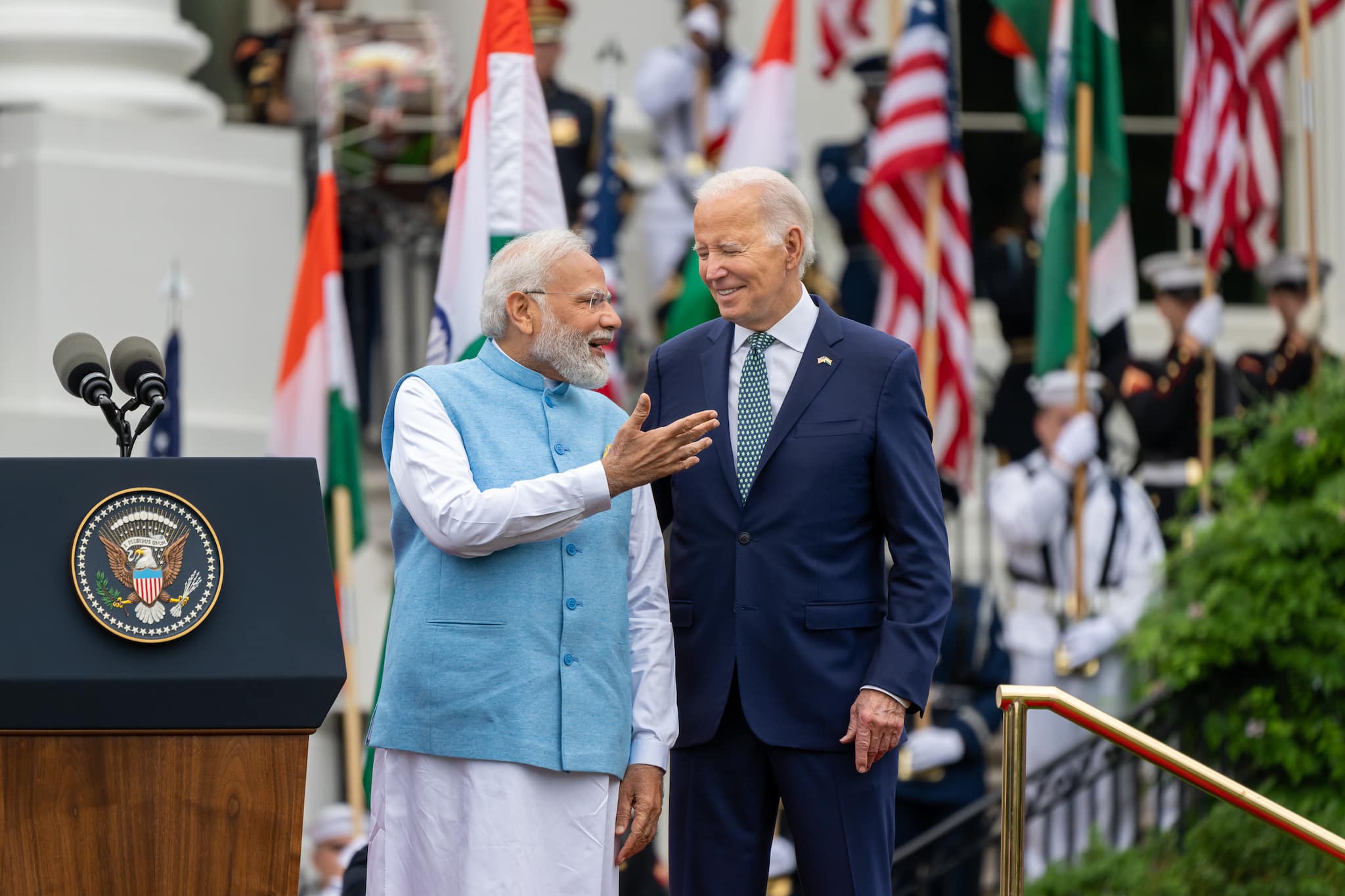
By K Raveendran
The proposed India, Middle East, Europe economic corridor is expected to go a long way to increase the political clout of Middle East countries, particularly the Gulf countries, which the West has hitherto been looking at mainly as a market for arms as well as the security might of US and allies, apart from a dependable source of oil supplies.
The ambitious plan to link three continents with the help of sea and rail networks is seen to usher in a new era of connectivity and as a counterweight to China’s aggressive Belt and Road Initiative in the region offers the scope for greater political participation for Middle East countries in the western geopolitical algorithms. The proposal has been hailed as a major achievement for both US president Joe Biden and prime minister Narendra Modi, the prime movers of the idea.
European Union, India, Saudi Arabia, the United Arab Emirates, the U.S. and other G20 partners signed the deal on the sidelines of the Delhi G20 summit. The deal seeks to link the Middle East by railway and connect them to India by port, helping the flow of energy and trade from the Gulf to Europe, by cutting shipping times, costs and fuel use.
The corridor envisages that cargo from India would reach the ports of Gulf countries and the Israeli Mediterranean ports and from there transported to Europe by rail. Already a trans-Gulf rail network is under development, while rail and road networks between the Israeli and the Arabian peninsular ports with links to Jordan, Iraq, Turkey, Sudan and Libya are progressing.
The route will also enable electricity and digital connectivity, as well as pipes for clean hydrogen export. It will be an alternative to the Chinese project, which Biden has described as a ‘noose and debt’ programme, taking cue from the ‘Belt and Road’ name of the Chinese initiative. Countries like Sri Lanka and Pakistan have experienced the bitter taste of Chinese economic assistance.
The new arrangement serves Joe Biden very well as he has been trying to bring rivals Israel and Saudi Arabia, both staunch supporters of the United States, together on the same page. The US has been watching with concern the growing Chinese influence in Middle East as well as Africa as well as the Gulf countries, which have been trying to maintain a balance between their traditional western partners and the emerging new superpower China. At least three Gulf countries in the new corridor are already members of China’s BRI and these include Saudi Arabia and the UAE.
Beijing launched the massive infrastructure project in 2013 and has poured around $1 trillion into its projects so far. China has claimed that it has signed up more than 150 countries for its ambitious scheme, besides over 30 international organisations.
The growing Chinese clout has also led to a certain distrust between some of the Gulf countries and the United States, particularly Saudi Arabia under the leadership of crown prince Mohammed bin Salman. There is a love-hate relationship between Biden and the crown prince over the US allegation connecting Bin Salman to the killing of prominent Saudi journalist Jamal Khashoggi.
It is noteworthy that Israel, which has made it a priority to normalize ties with Saudi Arabia, has hailed the project, saying it “changes our global and historical situation” and advances the vision of “joining Israel to the world,” as per a CNN report.
The new Asia-Europe economic corridor is in a way a revival of a train route that extended from Paris in western Europe to Istanbul, the junction between Asia and Europe. It was used to transport raw materials to Europe and industrial products in the reverse direction. Cargoes and people from Morocco, Egypt and Israel reached Beirut and Tripoli by ship enroute western Europe via Aleppo and Istanbul.
The revival of the old route was first mooted at the recently formed I2U2 forum of India, Israel, US and the UAE. The US quickly realised its potential to bring arch rivals Israel and Saudi Arabia, which Joe Biden has taken to the next level at the Delhi G20 summit, pledging American investment for the development of the new economic corridor. (IPA Service)
The post Modi-Biden’s Economic Corridor Boosts Political Clout Of Middle East Countries first appeared on Latest India news, analysis and reports on IPA Newspack.


